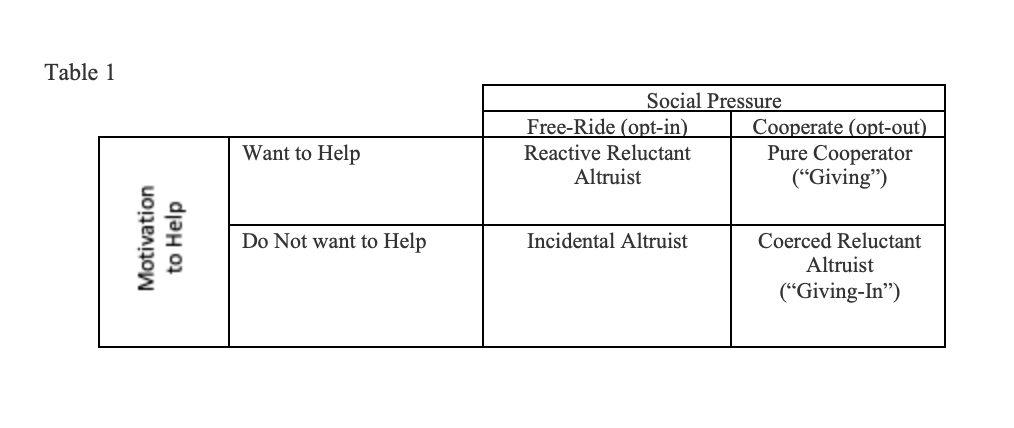I think there is potential here. Critical is the idea of conditional cooperation [Fischbacher et al, 2002]. Conditional cooperation occurs when people are aware that others are cooperating and this motivates them also to cooperate. It is a powerful phenomenon and can be harnessed to increase cooperation. Indeed, conditional cooperation may be of particular importance in the context of recruiting blood donors, as recent work has shown that conditional cooperation is a stronger social force when free-riding is high [Ferguson et al., 2020], that is when the majority of people choose not to cooperate as in the context of blood donation. Targeted messages would be problematic here as they are likely to be based on descriptive norms with the potential for unforeseen negative consequences – that is, if most people don’t donate blood why should I. A simple social media status update such as – ‘I have just donated blood’- of a Facebook, WhatsApp, Instagram status update icon for donating blood will likely have a major and positive impact on donor recruitment, as it has worked very well for organ-donation under an opt-in system [Cammeron et al., 2013] (see Table 1 below as well).
References
Cameron AM, Massie AB, Alexander CE, Stewart B, Montgomery RA, Benavides N R, Fleming GD, Segev DL.
Social media and organ donation registration: The Facebook effect.
Am. J. Transplant. 2013,
12: 2059-2065.
Ferguson E, Shichman R, Tan JHW.
Lone Wolf Defectors Undermine the Power of the Opt-Out Default.
Sci. Reps. 2020,
10: 8973.
Fischbacher U, Gächter S, Fehr E.
Are people conditionally cooperative? Evidence from a public goods game.
Econ. Letts. 2001
, 71: 397-404


